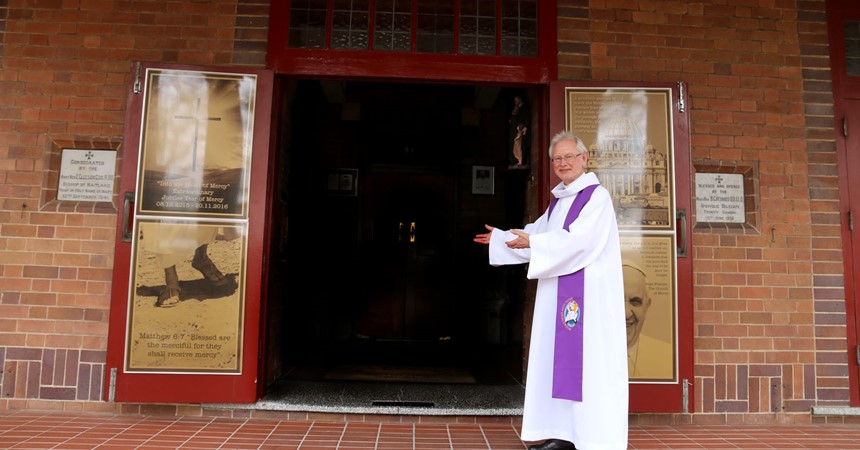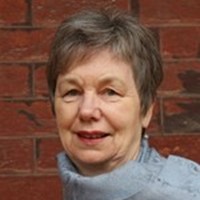We see him continually encouraging his followers to look for signs of God’s kingdom taking shape, with one key image being that of a wise ‘master’ who brings from his treasure “what is new and what is old” (Matt 13:52). In other words, good leaders keep us surprised and on our toes: never just ‘same old, same old’!
We observed exactly that when Pope Francis declared a Year of Mercy. Mercy is indeed an inexhaustible and ancient treasure to be continually plumbed. As Brisbane’s Archbishop Mark Coleridge says, “Mercy isn’t just an aspect of the gospel; it is the gospel!” So we were alerted to the ‘old,’ but with a ‘new’ or renewing focus: a year for us to declare, experience and embody mercy in myriad ways, profound and transformative. However, once out of the box, mercy could not be returned! The momentum gained across those twelve months is ongoing and unstoppable; gone is any inclination to complacency, or a less than merciful way of being.
Matthew’s Jesus also affirms that mercy is what God, not just Francis, proposes: “I desire mercy not sacrifice” (Matt 9:12). Brendan Byrne sj reminds us how that might look in his insightful gospel commentary Lifting the Burden: Reading Matthew’s Gospel in the Church Today (St Pauls, Strathfield, 2004). He reflects that Matthew’s Jesus is passionate about liberating people from whatever weighs them down. We witness his scathing attacks upon the Pharisees’ imposing impossible burdens on people’s shoulders, requiring them to observe minute details of the Law rather than experience a tender God who wants to heal, free and make whole. Jesus in Matthew extols leaders (and all of us) to check what motivates our faith, ensuring that we embody, as he does, the friendship with suffering humanity desired by the living God. In hearing the cries of suffering humanity and the environment across the globe, we are called to be attuned to the loving heartbeat of a merciful God – and direct our community energy accordingly.
Faith is lived in community, continually inviting us to engage together in living God’s mercy in ways that respond to local need. Each week in 2016 and 2017 The National Catholic Reporter has featured a particular parish community taking seriously the Pope’s call for us to be ‘field hospitals’ – on the front line, out on the margins – as Jesus was. A huge challenge is how to ensure everything we do and the resources we maintain enable us to be freed for mission, not burdened by weighty attitudes or possessions.
Mercy stories abound − such as the Newcastle community tangibly committed to pastoral ministry at the local hospital or running a soup kitchen. Each Christmas Beaumont Street Uniting Church community invites charities to decorate a tree. Last year there were 16, forming the Advent sacred space. Already familiar with the church as a place of welcome and outreach, many passersby came in to experience the hospitality, ponder the causes represented (Vinnies, Brown Nurses, Refugee Centres, Breast Cancer Awareness, cystic fibrosis with some trees decorated by school students) and donate. On the final Sunday before Christmas the community welcomed representatives of each charity to its liturgy – presenting each with the funds raised for the particular charity. It was a powerful interlinking of worshipping church and wider community – echoing Pope Francis’ call to respond compassionately to those close to the heart of Jesus, “sheep without a shepherd” (Matt 9:36).
Matthew’s Jesus is unequivocal about our engaging our talents in bringing forth God’s desire that we live life “on earth as it is in heaven” (Matt 6.10). And how urgent is our daily prayer in a wondrous, yet troubled, complex world; might it embrace the whole earth! God works, not as a magician, but with us and within the nitty gritty of human living, family responsibilities and community engagement. Remember the parable of the talents (Matt 25:14-30), in which the ‘boss’ handed to his workers as he went away (yet another conference?) various numbers of talents or coins. On his return most had been productive, but one buried what had been given in fear. Recall the boss’ anger and searing reaction because the person had not taken seriously his request!
A good friend died on Christmas Eve. She was a Sister of Mercy, an exciting theologian who shared her passion about the renewal invited by Vatican II with the nation and beyond. Her obituary in The Age (21 Jan 2017) honoured the breadth and creativity of her influence as a woman of faith and educator in the church − a presence and contribution many will find irreplaceable. I expected she would continue to be there, pointing a direction for people in her religious community, across the church and well beyond, a woman grounded in the world and its culture and totally committed to its becoming more whole and merciful. Jan Gray did not know that, as the Pope’s Year of Mercy came to an end, she would engage face to face with God about her lifelong invitation to embody God’s mercy. But the headline to her obituary pointed to what others (and surely God) recognised: “Talents placed at the service of mercy.”
God’s desire for mercy continues through all of us who have been given our one, two or five talents, which we are impelled to utilise, develop and multiply across a lifetime. So while 2016’s Missionary of Mercy, Fr Richard Shortall sj, has returned to continue ministry in the diocese, each one of us shares the missionary imperative. Ideally the words which encapsulate the life of my friend can be spoken of us all: see how these Christians place their talents at the service of mercy!
Missionary on Wheels returns with a different toolkit
Fr Richard Shortall sj will engage with participants through scripture, prayerful reflection, lectio divina and decision-making through the lens of St Ignatius Loyola, founder of the Jesuits to whom Richard belongs. There will be opportunities too for conversation and fellowship and all will be daytime sessions. Richard writes, “Please remember that I am very much looking forward to my weeks with you.”
Vivien Williams recommends The Blessing of Mercy: Bible perspectives and ecological challenges by Veronica Lawson rsm for further reading. Fr Richard Shortall is leading communities “Praying in Everyday Life” at Kotara, Denman, Rutherford, Calvary Mater Hospital, Waratah, Wallsend and Toronto. See more here or P Fr Richard Shortall 0448 292 523.




























































































